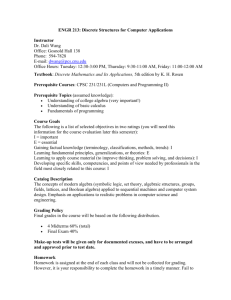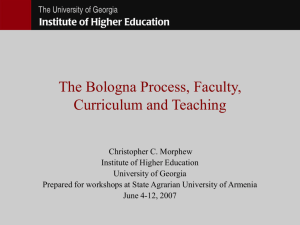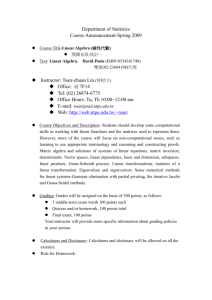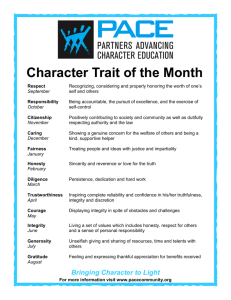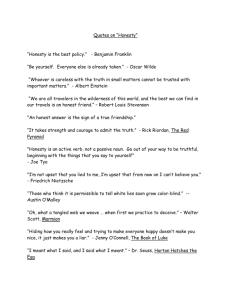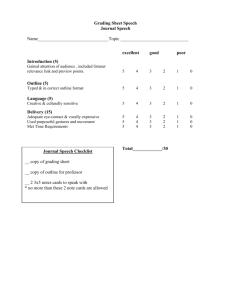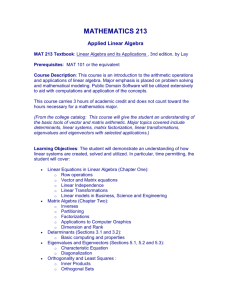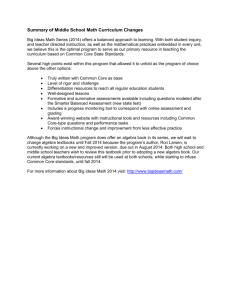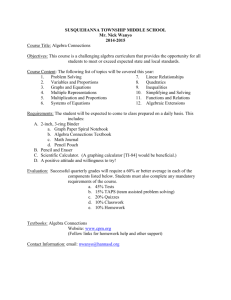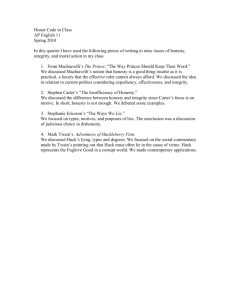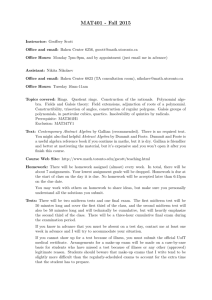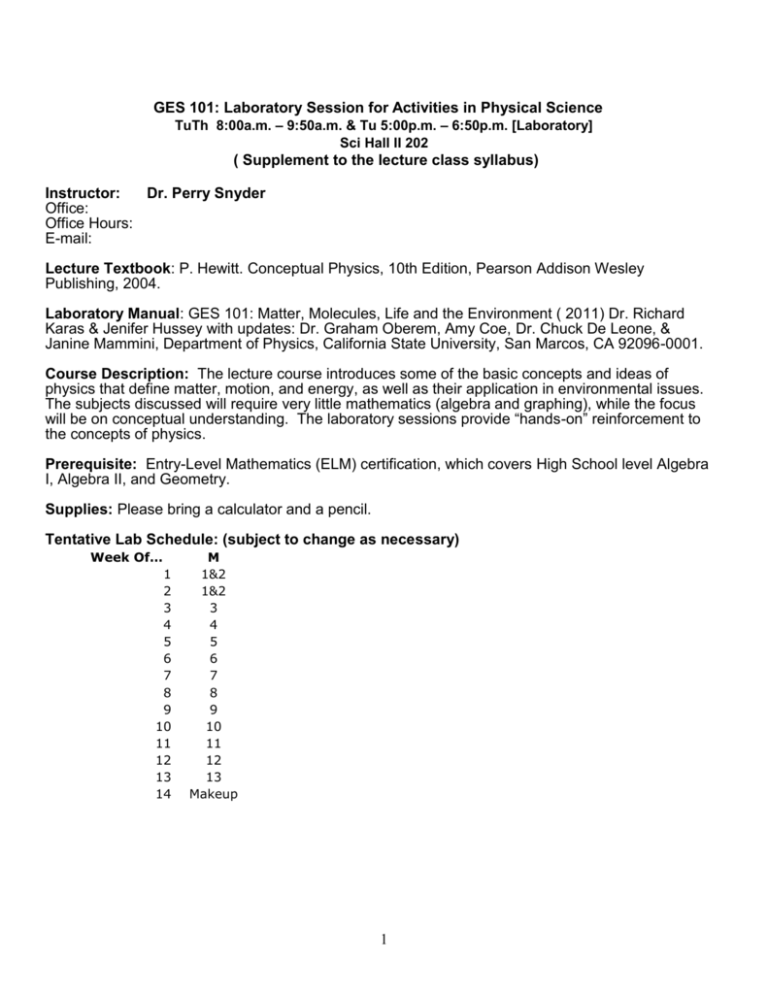
GES 101: Laboratory Session for Activities in Physical Science
TuTh 8:00a.m. – 9:50a.m. & Tu 5:00p.m. – 6:50p.m. [Laboratory]
Sci Hall II 202
( Supplement to the lecture class syllabus)
Instructor:
Dr. Perry Snyder
Office:
Office Hours:
E-mail:
Lecture Textbook: P. Hewitt. Conceptual Physics, 10th Edition, Pearson Addison Wesley
Publishing, 2004.
Laboratory Manual: GES 101: Matter, Molecules, Life and the Environment ( 2011) Dr. Richard
Karas & Jenifer Hussey with updates: Dr. Graham Oberem, Amy Coe, Dr. Chuck De Leone, &
Janine Mammini, Department of Physics, California State University, San Marcos, CA 92096-0001.
Course Description: The lecture course introduces some of the basic concepts and ideas of
physics that define matter, motion, and energy, as well as their application in environmental issues.
The subjects discussed will require very little mathematics (algebra and graphing), while the focus
will be on conceptual understanding. The laboratory sessions provide “hands-on” reinforcement to
the concepts of physics.
Prerequisite: Entry-Level Mathematics (ELM) certification, which covers High School level Algebra
I, Algebra II, and Geometry.
Supplies: Please bring a calculator and a pencil.
Tentative Lab Schedule: (subject to change as necessary)
Week Of…
1
2
3
4
5
6
7
8
9
10
11
12
13
14
M
1&2
1&2
3
4
5
6
7
8
9
10
11
12
13
Makeup
1
Course Grading (see below for details):
Each completed laboratory session will count 30 points for a total of 390 points. The lowest
grade will be discarded so there will be no makeups.
Letter grades will be assigned as:
A – 90-100%
B – 80-90%
C – 70-80%
D – 60-70%
F – less than 60%
Laboratory Reports: Each Laboratory assignment will consist of a series of steps executed by the
student and leading to an improved understanding of the physics principles considered. Questions
in the laboratory manual associated with the procedures will be answered during the laboratory
session. A typed report giving the student’s response to the laboratory manual queries will be
prepared for each session and submitted for grading at the first of the next following session.
The typed report will be graded on three issues: Completeness, Writing (using complete sentences
and paragraphs with proper punctuation and spelling) and Demonstrated Reasoning.
Quizzes: The student is required to read the material in the manual (with recommended
preparation sections of the text) before coming to the laboratory session. An occasional quiz may
be given at the first of a laboratory session to assess the student’s preparation.
Academic Honesty Policy:
Students are responsible for the individual completion of their work, and will be expected to adhere
to the standards of academic honesty and integrity outlined in the CSUSM Student Academic
Honesty Policy. All assignments must be the student's own original work, clear and error-free. All
ideas/materials that are borrowed from other sources must have appropriate references to the
original sources. Any laboratory reports, which appear to be identical, will receive a “zero” grade for
all students with matching material.
2

